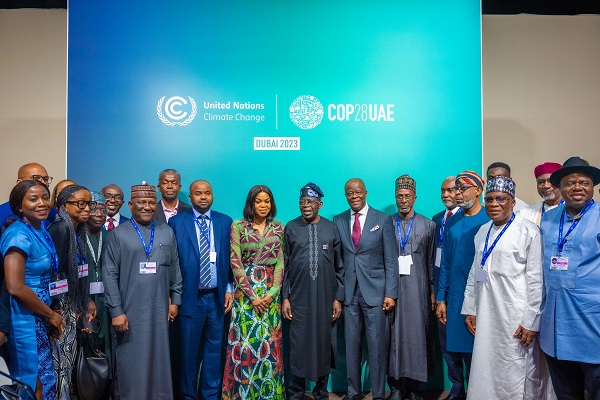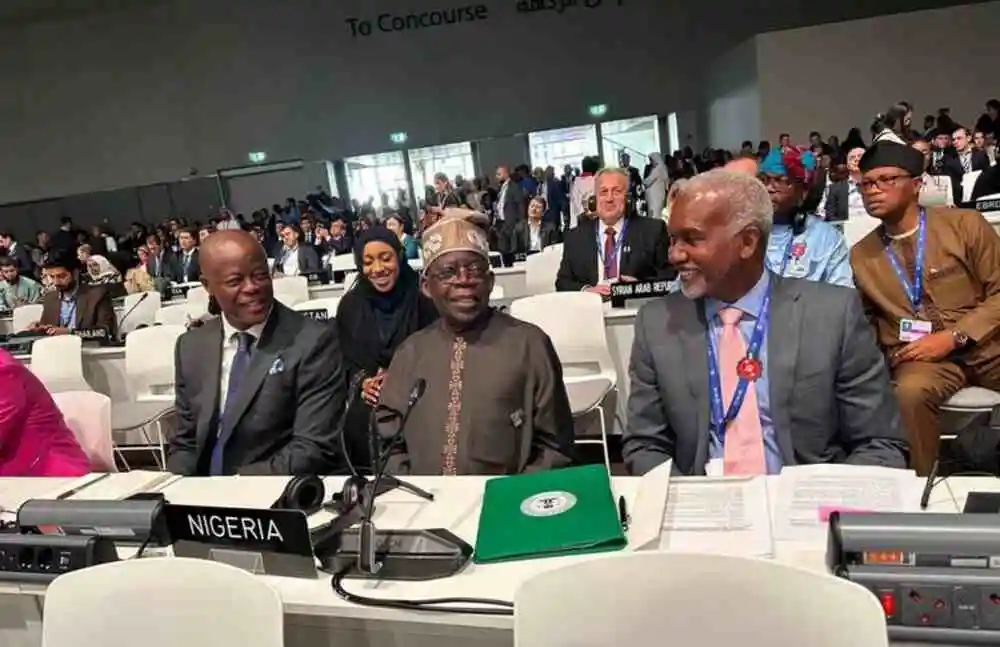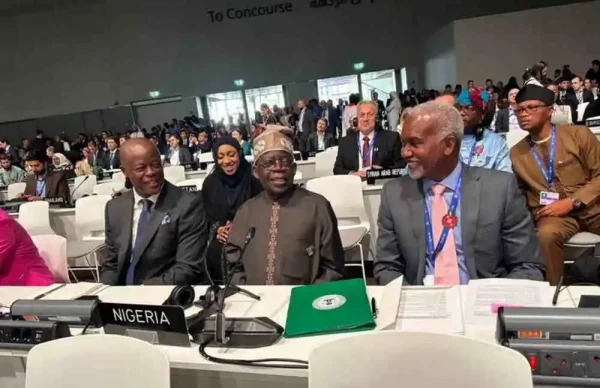As COP28, the 28th Conference of the Parties to the United Nations Framework Convention on Climate Change, unfolds in Dubai, the world’s attention is focused on the urgent need to address climate change. For Nigeria, a country already experiencing the impacts of a changing climate, the conference holds particular significance. Nigeria’s president, accompanied by a delegation of Nigerian officials, is attending COP28 with the hope of securing tangible commitments and support for Nigeria’s climate adaptation and mitigation efforts. Nigeria’s vulnerability to climate change is well documented, with its vast agricultural sector and coastal regions facing increasing risks from droughts, floods, and rising sea levels.
Read more about Environment
The impacts of climate change are already being felt in Nigeria, with reduced agricultural productivity, water scarcity, and increased frequency of extreme weather events taking a toll on the country’s economy and well-being. In recent years, Nigeria has experienced devastating floods and droughts, which have caused widespread damage to infrastructure, crops, and property.

While the outcomes of COP28 remain uncertain, there is hope that the conference will lead to concrete actions that will help Nigeria and other vulnerable countries cope with the impacts of climate change. However, in the meantime, climate change has affected Nigerian businesses, as well as the economy. The following are some of the key ways in which climate change is impacting Nigerian businesses:
Increased Risk of Natural Disasters
Climate change is increasing the frequency and intensity of extreme weather events such as floods, droughts, and cyclones. These events can cause widespread damage to infrastructure, crops, and property, and they can disrupt supply chains and business operations.
Sign up for the Connect Nigeria daily newsletter
-
Reduced Agricultural Productivity
Climate change is leading to changes in rainfall patterns and temperatures, which are making it more difficult to grow crops in Nigeria. This is leading to reduced agricultural productivity, which is hurting the incomes of farmers and businesses that rely on agriculture.
Increased Water Scarcity and Every Cost
Climate change is making water scarcer in Nigeria, which is a major constraint for businesses in many sectors, including agriculture, manufacturing, and tourism. Climate change is also leading to increased energy costs, as businesses are forced to invest in more expensive technologies to adapt to the changing climate.
Reduced Economic Growth and Increased Poverty
Climate change is expected to reduce Nigeria’s economic growth by up to 3% per year by 2050. It is also expected to increase poverty in Nigeria by up to 20% by 2050.
Register to attend the CN Business Mixer
Final Thoughts
Climate change is a serious threat to the Nigerian economy and businesses. The Nigerian government and businesses need to take action to adapt to the impacts of climate change and mitigate its effects. Some of the key actions that can be taken include; investing in climate-resilient infrastructure, developing climate-smart agriculture and investing in renewable energy. By taking these actions, Nigeria can reduce its vulnerability to climate change and protect its economy and businesses from its impacts.
Got a suggestion? Contact us: [email protected]


